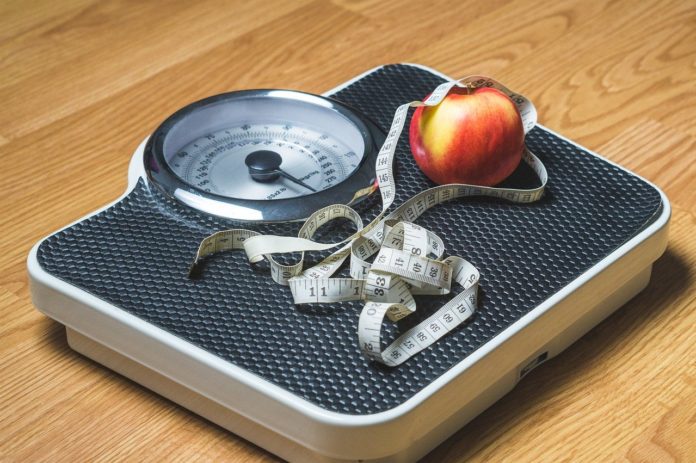The New Year is a chance to make changes, live a healthier life, and feel better and happier about yourself. Just because you’re not as young as you used to be doesn’t mean that New Year’s Resolutions can’t give you a renewed sense of purpose or have a positive impact on your health and overall well-being.
Cultivating a sense of purpose in your life has been shown to have long-term positive effects on your greater health. The Journal of the American Medical Association published a study showing that seniors with a greater sense of purpose retained higher walking speeds and stronger grips with their hands, both often used as key indicators of someone’s overall health.
It’s never too late to resolve to do better this year. Try one of these New Year’s resolutions for fostering a sense of purpose and improving your health.
1. Plan for Aging

It’s common to be reluctant to get into a conversation about aging with your family. But you can never go wrong with planning ahead. Talk to your family about how you want to age, and what your options are.
If you want to maintain your independence, downsize, and arrange for your own long-term assistance and care, you may want to discuss active senior living communities with your family. Senior housing options like All Seniors Care retirement residences offer older adults more freedom and flexibility in an environment that enables aging in place.
2. Improve Your Diet

One of the most popular resolutions around this time of year is a better, healthier diet, but there are few people who can benefit more from eating better than seniors. As you get older, you need fewer calories from healthier foods.
Here are a few ways you can improve your diet in 2024:
- Eating meat with less fat, such as chicken, tuna, salmon, or turkey.
- Increasing sources of calcium and Vitamin D (or even supplements) to support bones.
- Choosing fiber-rich carbs like whole grain bread, whole grain pasta, and brown rice.
- Eating fruits and vegetables, especially those with deep colors like spinach, carrots, oranges, and collard greens.
- Eating less processed sugar. If you’re craving something sweet, have some fruit. A small bowl of strawberries can be just as sweet as a handful of cookies. They’re also an excellent source of Vitamin C.
- Watch for foods that can irritate your stomach, like garlic, raw onion, and cucumber.
You can also go here to learn how to optimize your diet.
3. Get More Active

With aging comes a loss of muscle mass and mobility. One of your most effective weapons against losing mobility is staying active. If you’ve always been keen on fitness, as you get older, different types of exercise should take priority. Exercises that improve your mobility and flexibility should take precedence, including Tai Chi and yoga.
If you stay away from exercise because your joints bother you, you still have an option: aqua aerobics. The water will take the pressure off of your aching joints, allowing you to follow the class without any trouble. Almost anyone with joint pain or mobility issues can give it a try.
4. Record Your Life Story

Telling your life story can have major therapeutic benefits. It’s a way to put your past into perspective, remember your challenges and victories, and understand how you’ve come to where you are today.
There are several ways you can do it. If you like to write, you can fill out a journal or write a memoir about your experiences. If you like to craft, you can make a scrapbook filled with old photographs and small pieces of memorabilia. You can record your memories using a tape recorder or a smartphone app. Or, you can tell all of your favourite stories with your kids and grandkids. Every time you have them over for a visit, you can share treasured memories with them, and they can pass them on.
5. Get Better Sleep

There’s a common myth that you don’t need as much sleep when you’re older. Adults need between seven to eight hours of sleep every night — this doesn’t change once you reach the age of 65. Getting enough sleep is essential for your physical and emotional well-being. Think of how great you feel after sleeping-in on a Saturday. You’re calm and rested. You have enough energy to spring out of bed and start your day.
Meanwhile, sleep deprivation leads to serious health problems over time. It weakens your immune system, leaving you more vulnerable to viruses like the flu. It raises your blood pressure and increases your risk of heart disease. It affects your balance and coordination, which heightens your risk of injury from slips and falls. These are only a few examples of negative health effects.
Sleep loss can alter your emotional health. On a small scale, you will notice how a restless night will change your mood. You’re easily irritated, impatient, and you don’t feel like being social. On a larger scale, consistently suffering from sleep deprivation can lead to mental health problems like anxiety and depression. You’re also more likely to have negative thinking, poor impulse control, and less empathy towards other people.
The best way to improve your sleep habits is to develop a night-time routine. Try to go to sleep at the same time every single night, including on weekends. This will eventually regulate your circadian rhythm, forcing you to get tired right before the routine starts. It will become second nature.
Here are some more tips that will help you get a good night’s sleep:
- Make sure your mattress, sheets, blankets, and pillows are all comfortable.
- Turn down the temperature so that the room is nice and cool.
- Keep your television and your phone out of your bedroom.
- Drink less caffeine.
- Don’t drink too close to your bedtime.
- Take melatonin supplements such as MidNite.
- Meditate before bed to clear your mind of distracting thoughts.
Start the New Year off on the right foot. Set yourself a goal that will improve your life in one way or another, whether it’s planning for the future, leading a healthier lifestyle, eating better, sleeping better, or telling your life story.










